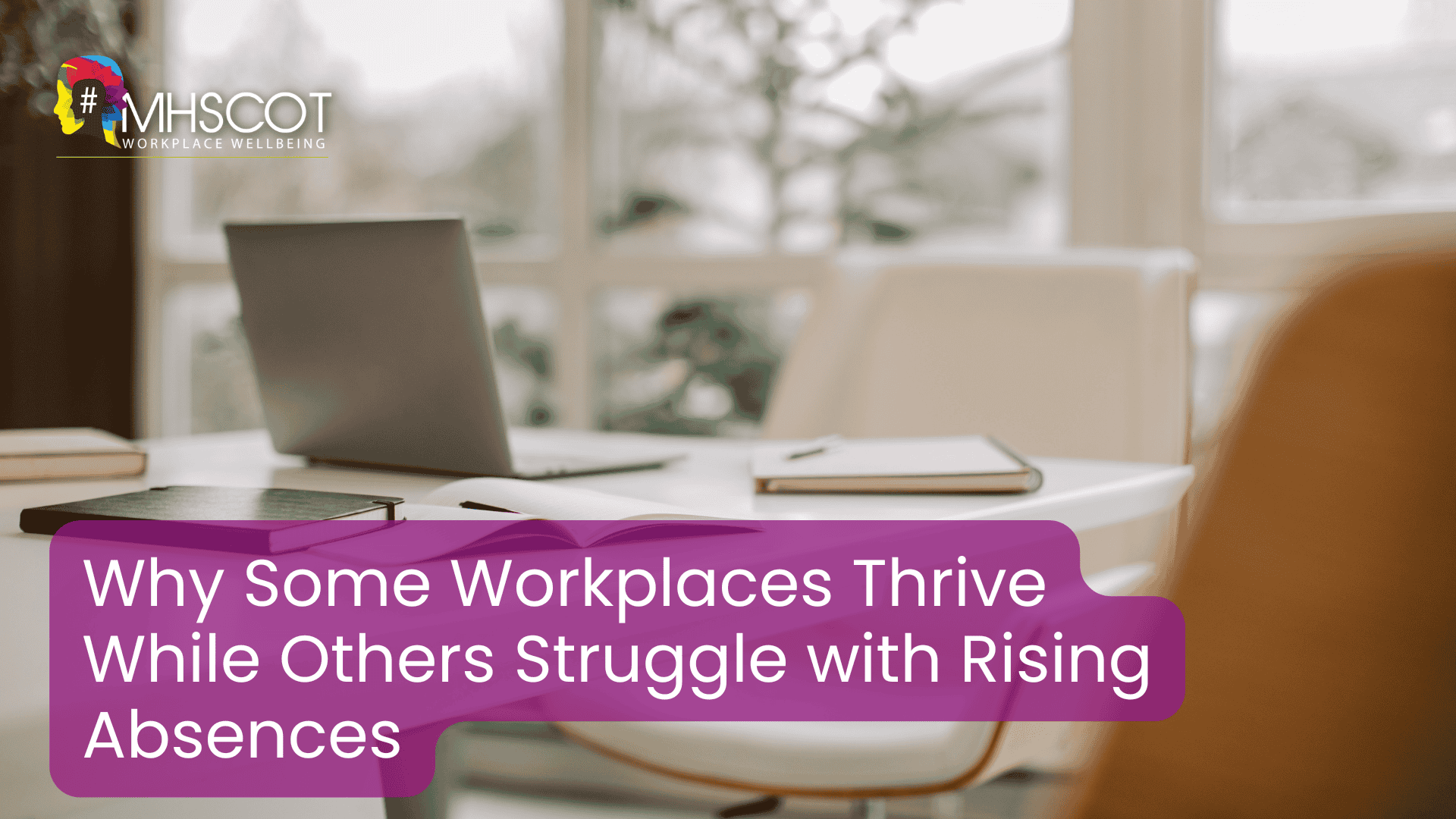
Why Some Workplaces Thrive While Others Struggle with Rising Absences
2 minute readAbsence rates are climbing - and it’s costing employers dearly. But while some organisations are feeling the strain, others are holding steady or even thriving.
So, what sets them apart?
The Rising Tide of Absence
Sickness absence in the UK is now at its highest level in over a decade. Mental health-related absences - particularly stress, anxiety and depression are the fastest-growing category.
In 2024 alone, over 20 million working days were lost due to poor mental health, up from 14.8 million the year before. Behind every number is a person - often exhausted, burnt out, or feeling unable to cope.
The causes are complex:
- Increased workload and financial pressures
- Uncertainty and change fatigue
- Limited access to mental health support
- Workplace cultures that reward overwork
- Managers who lack the confidence to have supportive conversations
The result? Employees are taking longer periods off, and teams are struggling to maintain momentum.
Why Some Workplaces Struggle
Some workplaces find themselves stuck in a cycle of absence because they treat it as an HR problem rather than a cultural one.
Common signs include:
- Stigma and silence: Employees don’t feel safe speaking up about how they’re feeling.
- Untrained line managers: Managers want to help but often don’t know how.
- Token wellbeing efforts: Yoga sessions and apps won’t fix systemic issues like workload or lack of flexibility.
- Reactive responses: Only stepping in once someone has reached breaking point.
In these environments, people push through until they can’t anymore - and when they do finally take time off, recovery takes longer.
What Thriving Workplaces Get Right
In contrast, organisations that are weathering the storm of rising absences share a few key traits:
1. Wellbeing is part of their strategy
They view wellbeing as a business priority, not a perk. It’s embedded into leadership goals, measured and acted upon, just like revenue or retention.
2. Managers are supported and trained
Line managers receive training in listening, empathy and Mental Health First Aid. They know how to spot early signs of distress and start meaningful conversations.
3. They focus on prevention, not reaction
Regular check-ins, mental health days, and open conversations prevent small issues from turning into crises.
4. Flexibility and trust are built in
Hybrid working, adaptable schedules, and phased returns to work are normalised, not treated as exceptions.
5. Culture is compassionate and fair
People feel safe admitting when they’re struggling. Mistakes are seen as learning opportunities, not failures. Leaders model openness, and that builds trust.
These organisations understand that when employees feel supported, they show up more engaged, loyal and productive.
The Link to Mental Health and Wellbeing
At its heart, rising absence is not just a productivity problem — it’s a wellbeing signal.
When mental health is neglected, absences rise. When wellbeing is prioritised, people thrive. It really is that simple - and that complex.
As MHScot Founder Catherine Eadie puts it:
"Rising absence isn’t a problem of policy — it’s a signal of how people feel. Organisations that put wellbeing at the heart of their culture are the ones that endure and thrive."
A Call to Action
If your organisation is seeing more people off sick, take a step back. Ask not just who’s off - but why?
Are your people feeling supported, trusted and heard? Do your managers have the confidence and training they need? Is wellbeing embedded in your culture — or just mentioned on paper?
The answers will determine whether your workplace merely survives the next few years or truly thrives.
Let’s Build Healthier Workplaces Together
At MHScot, we help organisations strengthen mental health and wellbeing at every level — through Mental Health First Aid training, leadership development and culture change.
If you’d like to explore how to create a workplace where people can thrive, get in touch at hello@mentalhealthscot.land